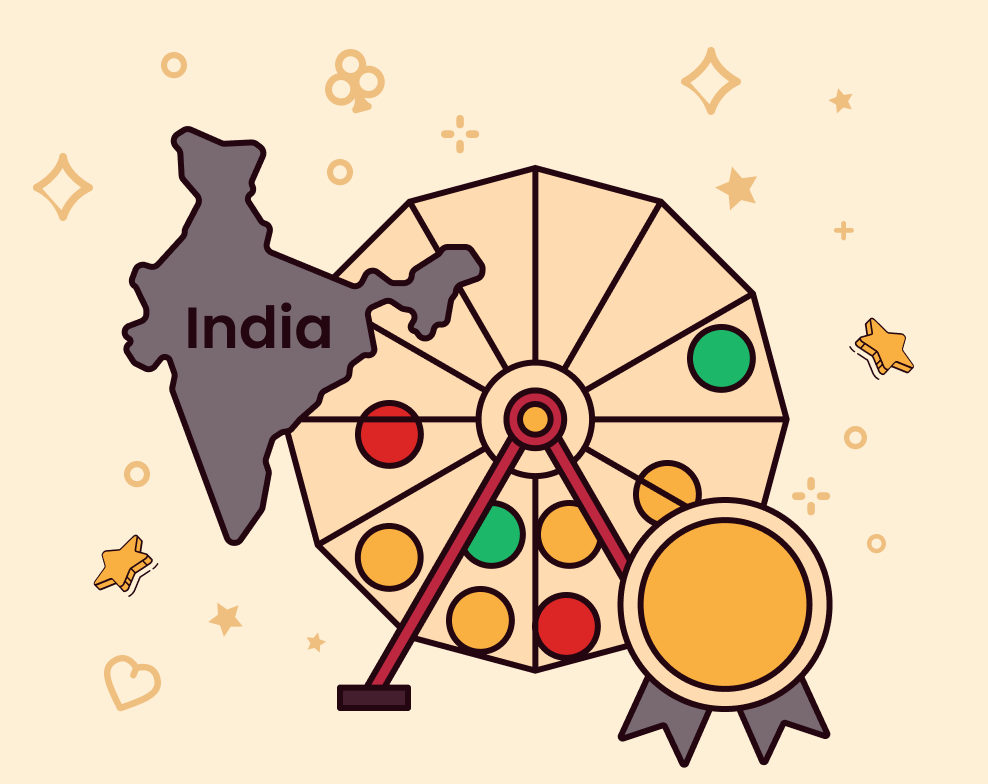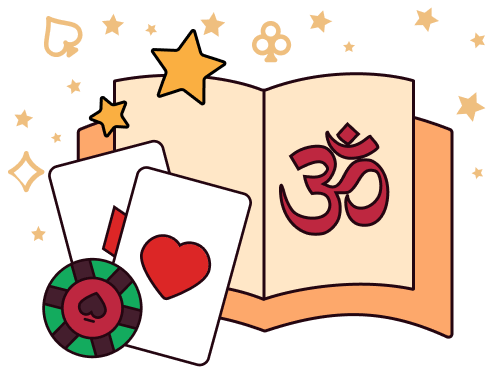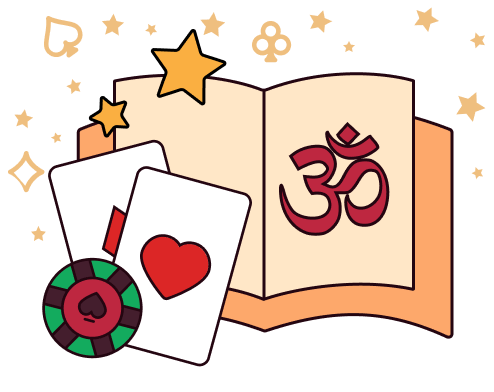Unearthing The Potential Advantages And Disadvantages Of Lowering Casino Taxes In India

Hiding your gambling income from the tax in-charge is difficult, as they are eager to grab them in a cramp. Does this happen in India? In a thoughtful approach toward developing the country's finance sector, the latest tax regime is being constructed to grab some pennies from the customer and their winnings.
A deliberate jump in the GST and TDS taxes from the previous slab has prompted many gamblers to withdraw from these gambling activities. But is it possible for Indian gamblers? No, as gambling is an addiction for them, distracting from gambling is a tedious task. They are looking for protective ways to lower the tax amount. Putting a nod on this statement, the industry believes that the sudden upscale in the GST revenue can lead to value destruction for the casino industry.
Disclosing Some Advantages and Disadvantages of Lowering Casino Taxes in India
Portraying every advantage and disadvantage of taxation on casino in India in the following segments.
Advantages of Tax Cuts
Economic Stimulus: Lowering the tax rates on various casino activities is one of the solutions for industrial growth. In the meantime, the country can enhance other sectors like tourism if the gambler pays less taxes to the government. They visit the land-based casinos at an affordable price, accommodating and gambling. Disposable income is gathered from the casino platforms and the gamblers by skipping certain tax rates on casino activities.
Casinos Invest More Games: Casinos start infusing more games in their gaming library developed by top-notch developers without giving money as tax. They get the scope to pay less to the government and spend more on the gambling treatment given to the gamblers when they enter their lobby.
Attract Potential Investors: By creating a more competitive tax structure on activity, governments can attract foreign investors to establish their projects within Indian borders. It brings direct investment and technological advancements in the casino sectors. You can witness it with graphic content, audio-visuals, and other designs from the latest slot machines, generating the overall growth of a country by enhancing economic competitiveness.
Enhances Gamblers Spending: When disposable incomes are enlarged due to tax lowerings in India, their spending on goods and services is enhanced. This boost in consumer spending spreads a ripple effect by stimulating demand and encouraging businesses to expand production.

Disadvantages of Tax Deduction
Unstabilizing the Government Revenue: The main drawback of tax cuts is a spontaneous decrease in economic growth. Every nation generates income from collecting taxes from its fellow citizens. When tax rates are lowered, it tends to reduce the country's gross income, leading to budget deficits. It impacts the funding of public services and infrastructure projects and hits the inclement of national debts.
Shorten Fiscal Flexibility: What does a tax regime of a country irrigate? It accumulates money to create a robust economic strength to support needy people. People do not understand the significance of tax collection. A reduction in tax manifests a country's inability to withstand any shortage of income, inflation, or unforeseen circumstances when the policymakers have less capital. Their ability confines to implementing countercyclical measures during periods of recession or crisis.
Impact on the Casino Industry, Tourism, and the Economy of India in a Whole
Gambling has the nature of creating an ambiance full of fun and entertainment for gamblers, leaving an interactive space for people to socialize. It is the current scenario of land-based casinos in India. Have you witnessed the inclined nature of online gambling catalysed by smartphone adoption? Now, state the condition of the tourism sector. This assumption in lowering the tax rates on casino games can impact the tourism sector and the economy; see how:
Cost Less to the Gamblers: One of the immediate effects of GST tax reduction in gambling activities may allure the gamblers to invest more in casino games and other betting platforms where their earnings can be bagged more than paying to the government. It uplifts the growth of the casino industry drastically but makes a negative impact on the economy growth.
Boost Domestic Tourism: Promoting domestic tourism would be easier if the GST tax or direct taxes on casino activities were reduced. It tempts gamblers to travel to other states to gamble if the entire cost becomes affordable for all types of gamblers. This enhancement in domestic tourism in India boosts economic growth as more finances can be collected from people from other sources besides gambling.
Increase Competitivity: A lower GST rate allows the casino hotels and tourism sectors to participate in the competition in attracting International and national tourists by offering them low tax rates when choosing accommodation. It makes the country more appealing compared to countries that endorse higher tax burdens for local tourists and international travellers.
Separate Methods For Gamblers to Lower Casino Taxes in India
If you are entered into a lucky night at the best casino hub of Goa, then your government will also enjoy that extraordinary night. But how to dodge this extra outgoing of money? Unfortunately, you cannot get any tax rebate showing rental or electricity bills. Thus, you must manage them cleverly. So, let's see some fine points hinting at some reduction method of the casino winnings.
Keeping a Good Record of your Losses: You can hide your gambling winnings from your net winnings by keeping good records of your losses. Think once when your gambling losses exceed your winnings. The casino still reports your winnings; you must take a critical step in proving your losses despite having zero income.
Look at the State Rules and Central Rules of Taxing Treatment Separately: When you travel to another state for gambling, you should adhere to the regulated laws, taxation on casino treatments, and winnings to know how much you must pay from your gross winnings.

The Latest News


Ana D.
•May 30, 2024
Lotteries and other forms of gambling have a colourful history in India. While lotteries are regulated under a central umbrella, how they are managed is subject to the discretion of state governments. However, the growing popularity of lotteries saw the Lotteries (Regulation) Act of 1998 and the Lotteries (Regulation) Rules 2010 introduced, which established detailed standards for the governments to follow.
Currently, lottery games are legal in 13 Indian states, though anyone of legal gambling age in India can buy international lottery tickets online. The ticket prices and prize pools of government lotteries in India vary depending on the lottery scheme and state in which it is regulated. Tickets for weekly draws begin at modest prices like ₹2 or ₹5 and increase for bumper draws and special schemes.


Akil Khan
•March 21, 2024
Whether you like it or not, luck plays a crucial role in gambling. And while many would argue that it’s an unreliable force, for many Indians, the ancient tradition of Vedic astrology offers a way to understand how luck works in the universe and how one could potentially manipulate it to work in one’s favour.
Vedic astrology (known as Jyotish in Sanskrit) is the practice of studying planetary positions, celestial influences, and karmic patterns to understand how these influence and shape human lives and destinies.
When it comes to gambling, some Indians look to Vedic astrology to boost their chances of success. By analysing astrological charts and horoscopes, and identifying cosmic connections, gamblers seek to find the most advantageous time to gamble, looking for lucky combinations of numbers, or even charms and rituals to help improve their chances.
Let’s look at this more closely:
Planetary configurations
"Muhurtha", an essential principle of Vedic astrology, indicates the opportune time to partake in certain activities based on planetary configurations. It also highlights when best to avoid certain activities. So, in the case of gambling, a player would wait for a favourable Muhurtha to maximise their chances of success.
Presence of the planets
Vedic astrology focuses on nine “grahas”, which are collectively referred to as the “navagrahas” (nava meaning nine). They include the sun (Surya), moon (Chandra), Mars (Mangala), Mercury (Budha), Jupiter (Brihaspati), Venus (Shukra), Saturn (Shani), Rahu (north node of the moon), and Ketu (south node of the moon). According to Vedic astrology, the planet Venus offers luxury and Jupiter provides immense wealth. A conjunction of Jupiter and Venus unafflicted with the moon is therefore said to bring good luck and prosperity.
Birth charts
Many Indians strongly believe in analysing their birth chart in every aspect of their life. This comes from Vedic astrology, which argues that the alignment of different celestial bodies at your birth can provide invaluable insights. In the case of betting, it could highlight a person’s gambling and risk-taking tendencies and subsequent strategies they could employ to maximise their chances of winning, translating into profits and success.
Astrology and numerology
Hindus love to rely on their favourite numbers, particularly when it comes to gambling, and generally prefer odd numbers over even. Seven and eight are considered auspicious numbers, representing success and prosperity. Many Hindus also use these numbers at the time of Diwali when, in some houses, gambling is a ritual. Another lucky sequence of numbers in Hinduism is 786, representing the Trinity of Brahma, Vishnu, and Shiva.


Akil Khan
•March 21, 2024
In casinos, we often hear phrases like good luck and good fortune. Not surprising, really, given how the majority of casino games are based primarily on chance, though some would claim that success is also down to mathematics and algorithms.
In any case, luck plays a crucial role in gambling, and many gamblers will have their own rituals they perform before games or even lucky charms they carry to improve their chances of winning.
Hinduism, one of the oldest practising religions in the world, believes in positive and negative energy, which could define your moves and outcomes. Furthermore, there are several ways one can channel these energies, whether through prayer or certain objects such as charms or symbols. We shall discuss these in more detail below.
Global Casino Association™
Casino.in is part of Global Casino Association™, the World’s largest casino affiliate network.
Copyright © 1995-2024, Casino.in, All Rights Reserved